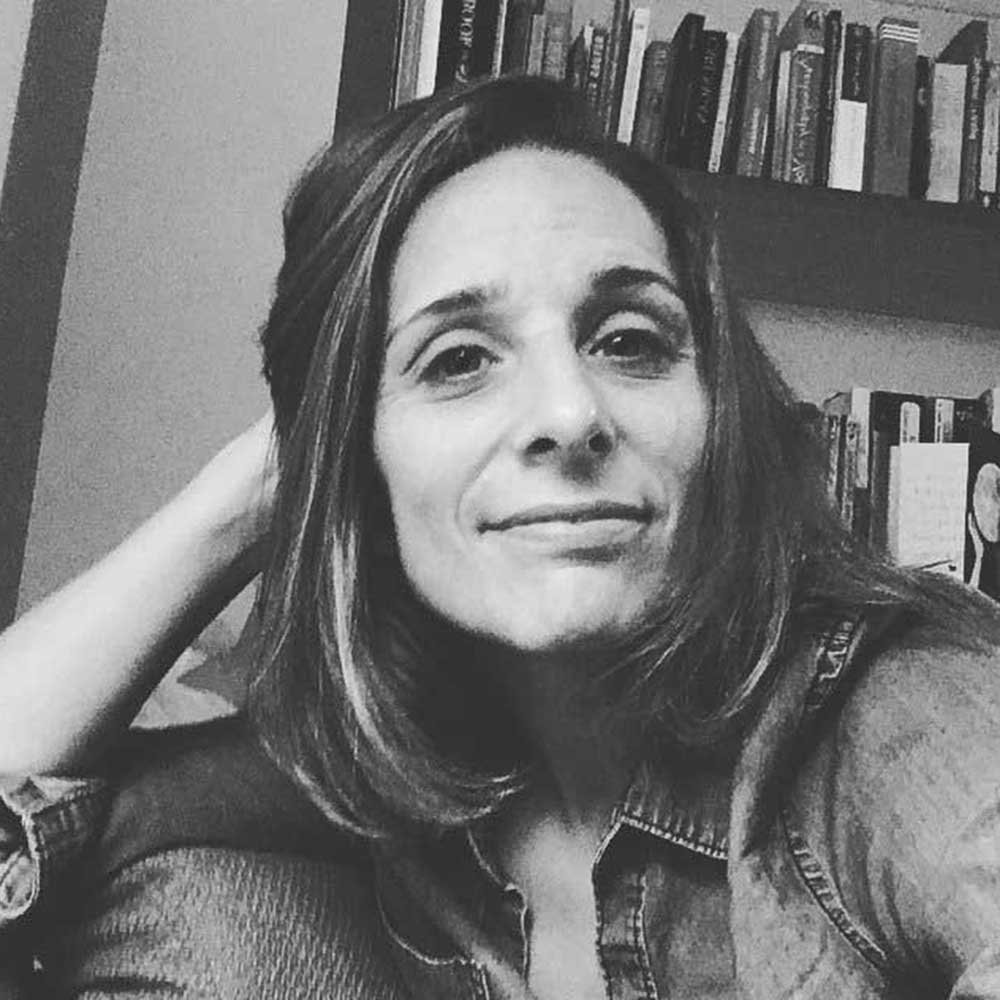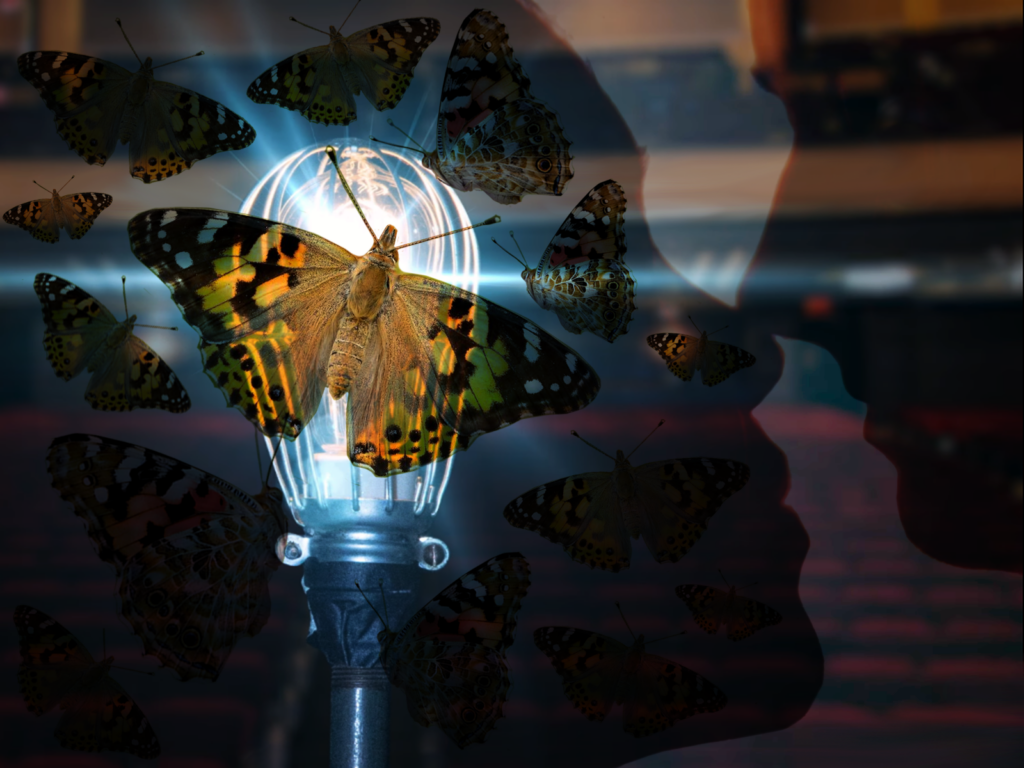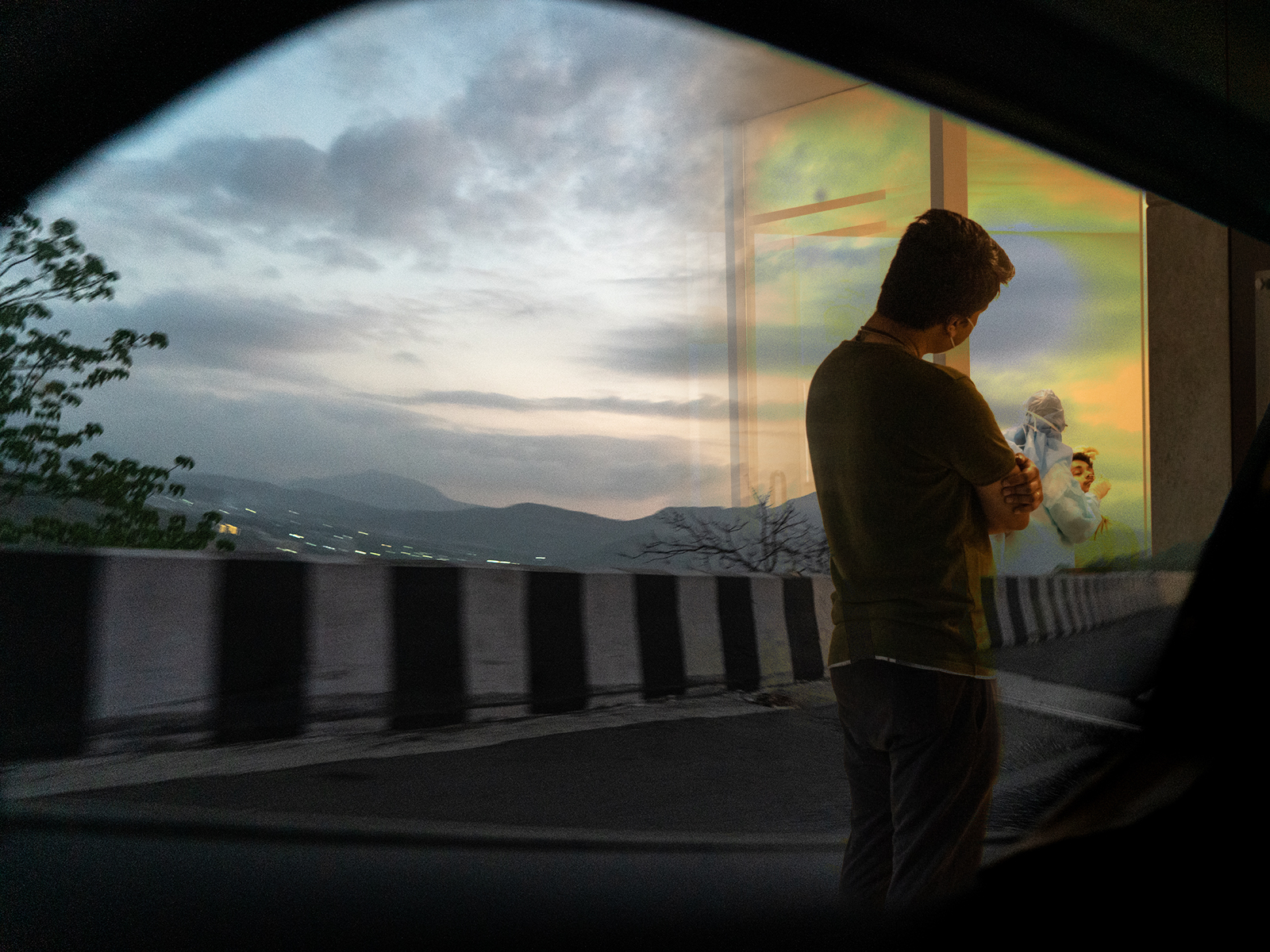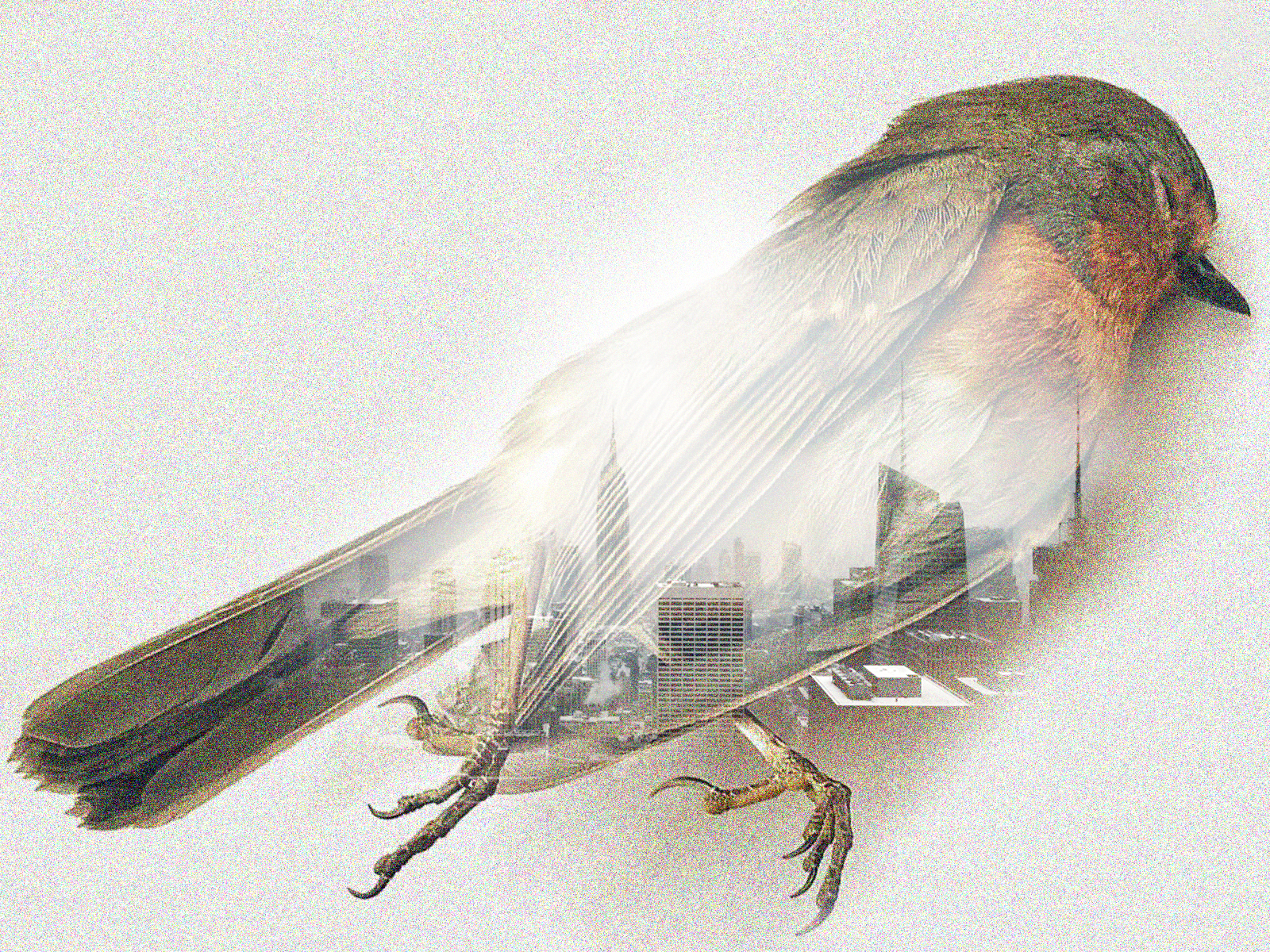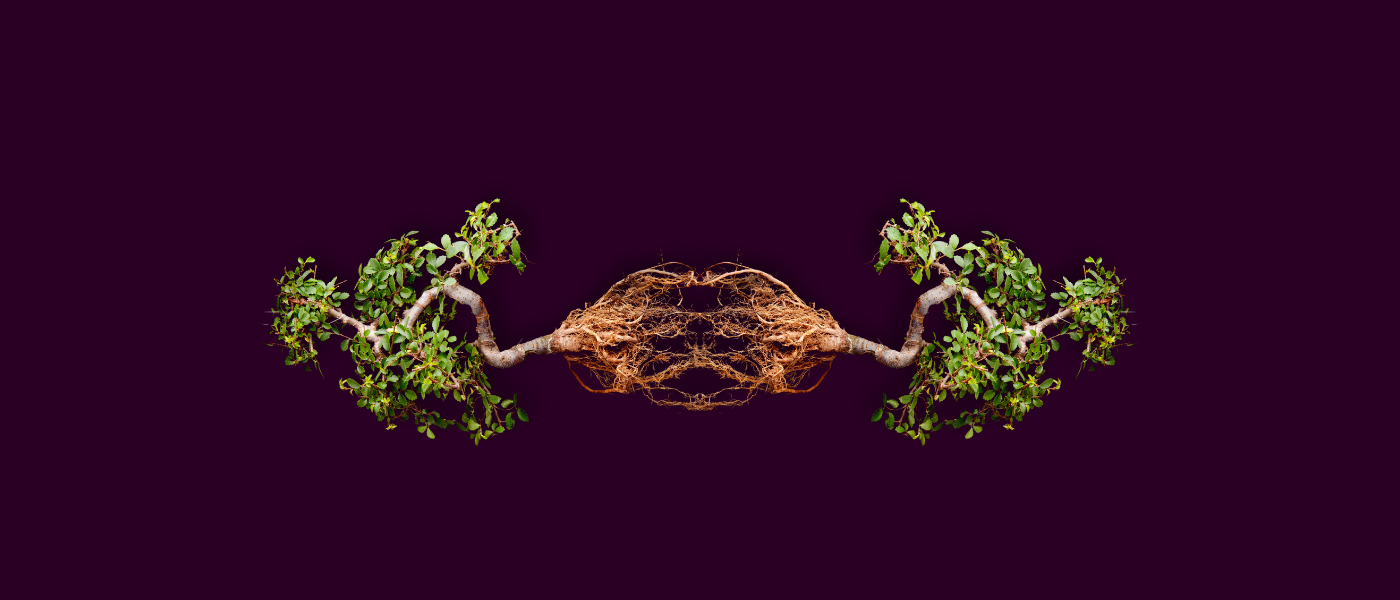April 10, 2020
Four weeks. Four weeks and still the virus. Things that were once normal now seem absurd.
Early one morning I walk by a rain-soaked flyer on the ground. Half-off leather recliners. Rice cookers on clearance. In-store discounts on vacuums. In-store. What store? No stores are open. No stores.
Broken glass on the sidewalk. Just a few months ago, some kids would have been smashing beer bottles on the scaffolding. Smashing, shrieking, laughing, running. Their footsteps light on the pavement, then silence. But now, no one is around to break glass. The streets are empty.
I stop and stare at the pieces. How they refract the morning half-light. I imagine a human walking along under last night’s lead sky and throwing this glass bottle hard against the brick wall. Just to hear it shatter. To feel a burst of something. A burst of anything.
April 17, 2020
Five weeks. My neighbor Justin is a nanny. A manny. A male nanny. The family he works for fled their Brooklyn apartment for their second home in Connecticut. They left in the early weeks when things were bad. I picture their big Connecticut house with big rooms and a big yard. Bushes in rows, flat green space.
“The family is still paying me,” he says, shrugging.
Because they love you, I think. They love him because he loves their children, cares for them deeply. Sunny, a girl, who is six. And a boy who is ten. I don’t know the boy’s name.
Justin cares for people, for things. His heart is enormous. A huge, flat, green, open-space heart. He has over 100 houseplants in his apartment. He says he misses the kids. He says he needs to care for more things.
He orders butterfly cocoons from the internet. Fourteen. They emerge after a few weeks, their orange and black wings flaring.
“They’re called painted ladies,” he says. He didn’t expect them all to survive, but they did.
He plans a butterfly release party. Invites the neighbors. “Wednesday at 2,” he tells us. “I’m going to release them into the sky. Come!”
On Wednesday ten of us come out of our apartments and stand on the curb. The sun hangs high and hot. We’re close enough to see the butterflies, far enough from each other to feel safe. Because still the virus. The orange butterflies are in the bottom of a tall mesh laundry hamper crowded around a small dish of sugar water.
Justin places two fingers on the lid, ready to open it. He starts a countdown and we all join in. Singsong voices. 5-4-3-2-1! He opens the top. We all hold our breath and wait. The butterflies do not move.
“This is going to be us,” my neighbor Jen says. “When lockdown is over none of us are going to leave our apartments.” We all laugh. Sort of.
After a few minutes, one of the butterflies crawls to the top, sticks its butterfly nose over the edge, and flutters away. It lands on a nearby bush. We clap and cheer. I feel something within me shift.
We stop clapping, say, “Bye, see you later.” We go back inside our apartments. It’s Wednesday. A weekday. Those of us who are still employed have meetings and calls and emails.
May 03, 2020
Six weeks. I haven’t been touched or hugged at all. Six weeks. I feel like I’m rotting, like I’m falling away piece by piece. “I’m aching,” I say to my girlfriend over the phone. “So much. I know we’re not supposed to. But. Can we please.”
“Yes,” she says, her voice soft.
“The virus is still —”
“Yes,” she says again, just above a whisper.
She arrives in a car. There, walking up the stoop, those ocean eyes bright against her dark mask. She slides past me, removes her shoes in the hall, walks into my apartment. Steps to the sink. I stand next to her as she washes up. I marvel at another person in my kitchen. Another body. Six weeks. She dries her hands and wraps her arms around me. I rise up into her. I emerge. I am touching. I am touched. I sink deep into her body.
We lay on the couch for hours, the afternoon sun pouring over us. I can’t believe her skin. Her warm breath on my shoulder feels like dawn.
May 12, 2020
During the day, I walk around my neighborhood with my dog Abby and collect phrases I hear. People chatting with neighbors on the street. Talking to themselves. On phone calls. Standing in line with other people, apart from other people. I store these phrases somewhere inside me.
The rats are hungrier than we are, man!
I hate to say this is killing me, because the virus is actually killing people. But this is killing me.
You’re too close, sorry.
I just want someone to lay on top of me —
Cool mask, dude.
They say it feels like your skin is on fire.
But Mommy, I’m so tiredddddddd.
I’m afraid of every single thing that I want.
Sometimes I hear a song playing in a passing car and the lyrics bounce around in my mind for hours, for days.
What do I do with all this
What do I do with all this love that’s runnin’ through my veins
For you
May 19, 2020
My upstairs neighbor Tess, who works in real estate development, loses her job.
She sits on our shared stoop and knits what looks like a blanket. Gray like slate, gray like a sigh. The leaves on the oak tree in front of our apartment are full and large now, and in the afternoon they splatter bits of sunlight over our steps. She sits quietly and lets the light roll over her bare feet. The light drapes her hands as they work.
I come outside and sit on the bottom step. I ask her how her day is going. She is quiet for a moment.
“It started out well,” she says. “I made tea. I worked out. It felt like a normal day.” She pauses, folds the blanket over her knees.
“But then I realized I don’t have a job anymore. I realized that this is not a normal day. That nothing is going to be the same ever again. And I couldn’t,” she says, pausing. She swallows something in her throat. “I just couldn’t.”
I think she’s about to cry, but she doesn’t. She doesn’t know me well enough to cry in front of me.
I go for a walk. South ten blocks, over two avenues. I see an elderly man sitting on a chair outside of a Key Foods grocery store. His bare feet are scuffed from walking many miles. The bottoms of his jeans are shredded. His left ankle is chalky grey and so swollen it doesn’t look like an ankle anymore. He is slumped over in the chair, his eyes closed. His fingers are wrapped around a paper cup. Even though he’s asleep, the arm with the cup is still extended. Still asking, still reaching.
I pull my wallet out of my bag. I haven’t used cash in weeks. No one has. Cash doesn’t feel safe to touch. I find a five dollar bill tucked between two credit cards. I pull it out and walk over to him. When I lean over to drop the five dollars into his cup, I pause and stare. It is full of tens and twenties.
I tuck the bill between the others ever so gently. Please don’t wake up, I think. Please sleep.
I walk away, feeling something like delight. His cup that would, in normal times, have no more than a few dollars was full.
Then, like Tess, I stop. I realize: still the virus. No matter how much is in his cup, it won’t be enough. This is not a normal day.
May 26, 2020
Nine weeks. My great uncle Frank dies. I find out on Facebook. A short post that begins with yesterday, a bright star left us. Then #rip and #gonebutnotforgotten and #alwaysinmyheart. A photo of him standing next to a fireplace raising a glass of white wine. He’s looking away from the camera. Electric eyes, supernova smile. His white hair flowing out of his head in tall hair waves.
He lived in New Jersey and was 85 years old, so I figure it was the virus. When I call my mom to ask, she says it was cancer. First in his gut, then up to his brain.
“That’s better than the virus,” I say too quickly. She is quiet. I am too. I’m not sure what I meant.
My aunt calls the next day. She tells me that in the 1970s, Uncle Frank and Aunt Fran were champion dancers on the Jersey Shore ballroom dancing circuit. They were married 62 years, she says. Until Uncle Frank had been admitted to the hospital, they had only spent one day apart.
Later that night, I can’t sleep. It’s late. I walk outside, sit on the stoop in the moonlight. I close my eyes and imagine my Uncle Frank’s arm wrapped around my Aunt Fran’s waist. They are in a bolero routine, frozen in time. Right at the still point. Right before one turn ends and another begins.
June 1, 2020
During lunch, I read about a janitor at a Broadway theater. The theater has been empty for months, but he is still responsible for attending to the facilities. Cleaning, sweeping. Checking to make sure everything is still working.
Every time he walks into the theater, it’s not completely dark. The ghost light, a single bulb at the lip of the stage, illuminates the space. There’s a ghost light like this in all the theaters. It’s lit when the theater is dark and empty, after productions, so the theater’s resident ghosts can meander about.
I think about all the empty theaters, all the ghost lights shining in the darkness. All the activity happening around us. Around those of us with bodies, those of us with breath. In all the places we can’t see or choose not to notice.
June 9, 2020
Eleven weeks. Still the virus. Things that were absurd now seem normal.
The echo of sirens, more sirens. Sirens all day and night.
Trucks with bodies parked down the street from Italian restaurants, dive bars, phone repair shops.
Every morning, a man sits near the intersection of Gregory and Baltic strumming a guitar. He plays one chord, over and over, for a long time. He strums hard and fast. It sounds like wires ricocheting against a metal wall. It sounds like lightning. It sounds like white-hot frantic hurt.
Most mornings I see him, but some mornings I can only hear him. The echo from his guitar is dizzying in these empty streets. Even though I look everywhere, sometimes I just do not see him.
When I hear him playing every morning, my heart grips and my eyes narrow and I hear myself think-shout I CAN’T STAND THIS STRUMMING. Then another voice within me follows that and whispers, Yes. Yes, of course.
June 19, 2020
Thirteen weeks. The first time I stand next to more than two people, it is in a crowd of two thousand. Protesting yelling crying screaming rioting looting. Spectrums and extremes.
Still the virus, people say. Yes. Yes, and. Yes, but. Yes, but cops crushed George Floyd’s neck. They crushed it so badly he couldn’t breathe and he suffocated and died. Cops shot Breonna Taylor. They shot her eight times while she was asleep. Hundreds of others. We say their names. Thousands of others. We don’t know their names.
We’re leaving New York, my friends say. They go online and order cardboard boxes. They tell me about faraway places. Hiking trails, heated pools, and flat green spaces.
“I’m staying,” I say. I want to be here. I want to be where I am. I want to be in this city, in Brooklyn. I want to fight. I want to scream. I want to scream with everyone. I want more and I want to demand it.
I’m afraid of every single thing that I want.
Above my apartment, helicopters and drones whirl for days and nights and days and nights. A curfew. We are told to stay inside. I stand by the window. A single street lamp illuminates my block for all the ghosts I cannot see. I think of the janitor in the Broadway theater. I gaze up at the black sky. There is no moonlight.
October 5, 2020
Twenty-five weeks. It’s the future.
An artist has collected thousands of discarded latex gloves and pieces of broken glass from the sidewalks and created an installation in Prospect Park. People walk by it. Some cry. Others vomit. Some pretend not to notice. It shakes when the wind blows. It sparkles in the noon sun. I often walk by it at night, when a single spotlight shines on it just enough to create a shadow.
December 7, 2020
I haven’t seen a homeless person in a long time. A neighbor tells me that some big banks donated their 70,000-person office spaces in midtown to be converted into public housing. All of their employees were working remotely, so they no longer needed the buildings. “That’s where all the homeless people went,” she says.
I think about my very first New York apartment, a shoebox in SoHo, which I shared with two other girls, Katie and Elise. We were 21, 22 years old. Every day an old man named Richie, who lived on the top floor of our building, sat in a chair on the sidewalk and talked to people passing by. He looked over the building, looked after us. He told us jokes, smoked sweet-smelling cigars, laughed about the old days. “Have fun,” he’d say as we left the building at night. “Don’t bring home any lousy bums.”
One morning, when we stepped out of the building, Richie wasn’t there. He was gone the next day, and the day after that. No one knew anything about where he went. We asked the barber next door, who just shrugged. We never saw him again.
“Maybe he retired to the beach,” Katie said. “Or the Italian Riviera.”
Elise and I were quiet for a moment. “Yeah,” Elise said, opening the door to our building. We glanced back at the empty sidewalk before walking inside.
February 8, 2021
“The hammer and the flow,” my friend Laura says. “That’s how it’s going to be. For a few years. The virus will hit us hard, like a hammer, then flow away. Cycles of that.”
January. Seventy infections one day leads to 870 three days later leads to 3,040 within the week. Also, the first blizzard of the winter. At night I sit by the window, look out at my backlit neighbors sitting in their windows. Every so often someone walks by my apartment. The snowfall is so heavy their footsteps are gone in minutes.
June 21, 2021
It hits 80 degrees for the first time. The longest day of the year. A new neighbor moves in down the block. When I meet her I am with my dog and she is standing in front of me facing the sun. People haven’t worn masks in a month so I can see her face. I don’t know her name, but her face. Her hair swept back. When she smiles, her amber eyes brighten into a kind of soft, layered gold I’ve never seen before.
December 24, 2021
It’s Christmas Eve and I’m at my friends’ house in southern New Hampshire. Their rent is so cheap they can afford all the space they’ve ever wanted. A vegetable garden, a basement, a porch big enough to stack wood.
Even now that the virus is gone, I think many people have realized they still need space. Maybe they always have.
“I can’t believe we stayed in the city for so long,” they say. “Now we have so much room,” they say. I nod, take a sip of tea.
“You wouldn’t believe our cats,” they say. “They’re so happy here.” They say the cats but they mean themselves. They are so happy.
They head upstairs to bed and I stay on the couch, where I’ll sleep for the night. The floors sigh when they walk from one room to the next. The pipes moan, door hinges creak. I’ve known my friends for years. I remember every corner and angle of their old apartment. Now these new, unfamiliar sounds echo and swirl around me.
I pull the blanket up to my chin and gaze at the fire, which is still roaring. I used to be afraid of flames and smoke, but I’m not anymore. Now I can sit in front of something that’s burning and feel safe and warm. Held.
